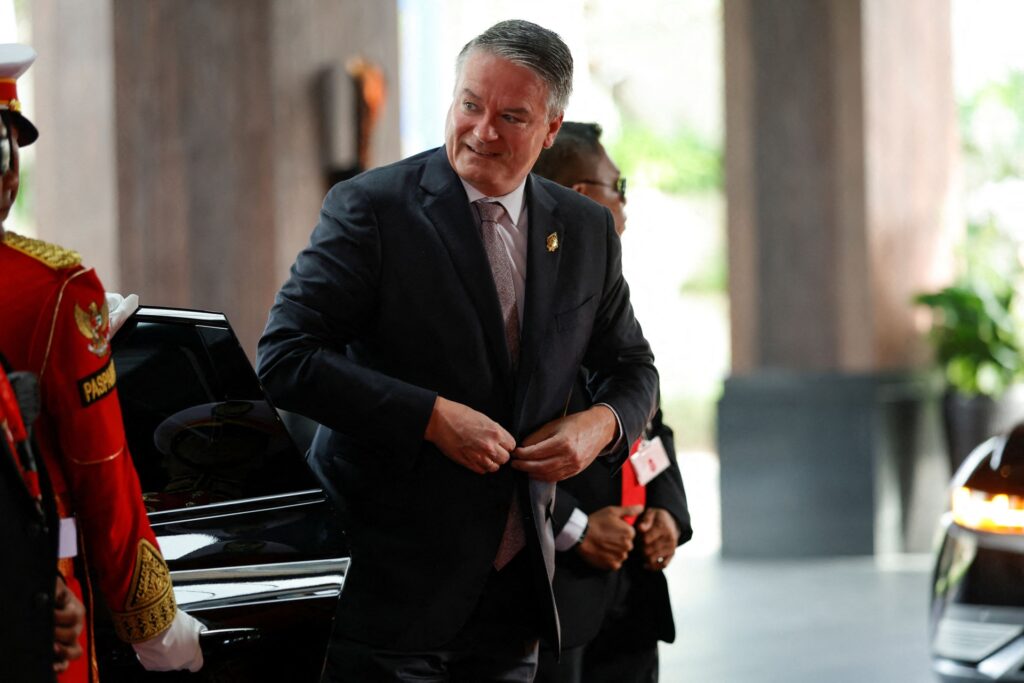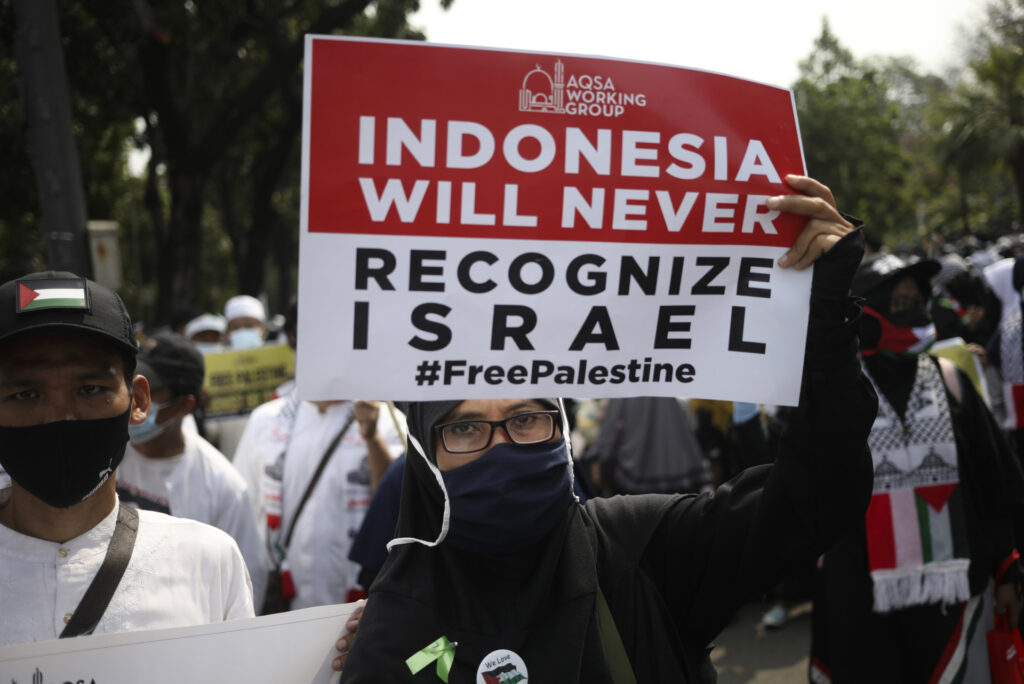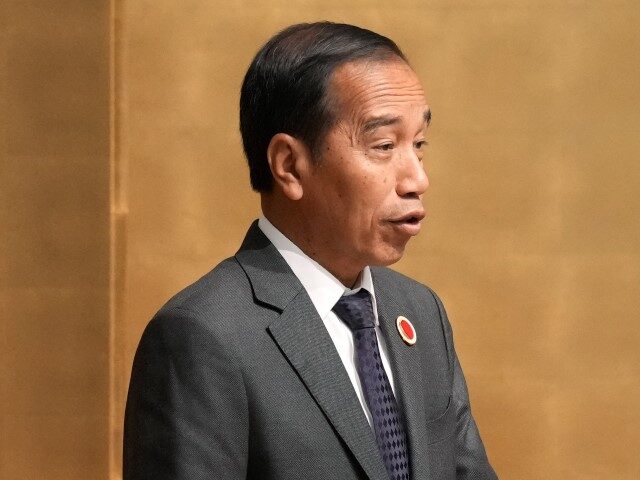An Israeli official on Thursday confirmed a report in Israeli media that the world’s largest Muslim nation is prepared to normalize relations with Israel in order to join the Organization for Economic Cooperation and Development (OECD).
The possibility of a normalization deal was first revealed by Israel’s largest daily newspaper, Yedioth Ahronoth, on Thursday. The report said “discreet negotiations” have been underway between Israel, Indonesia, and the OECD for the past three months.
Indonesia applied to join the 38 nations of the OECD in February, but current member Israel objected to Jakarta’s accession because the OECD informally encourages all member states to have solid diplomatic relations with each other, so they can collaborate on policy decisions.
Indonesia does not currently have diplomatic relations with Israel, although there have been some informal contacts behind the scenes, and the two nations enjoy about half a billion dollars a year in trade. Israel reportedly indicated it would support Indonesian membership in the OECD after relations between the two countries were normalized.
Yedioth Ahronoth reported that OECD Secretary-General Mathias Cormann wrote a letter to Israeli Foreign Minister Israel Katz two weeks ago in which he said Indonesia has been notified it must “establish diplomatic relations with all OECD member countries before any decision is made to admit it to the OECD.”

Organisation for Economic Co-operation and Development (OECD) Secretary-General Mathias Cormann arrives for the G20 leaders’ summit in Nusa Dua, on the Indonesian resort island of Bali on November 15, 2022. (WILLY KURNIAWAN/POOL/AFP via Getty)
Cormann assured Katz that membership for Indonesia would not move forward without “unanimous agreement among all member countries, including Israel.”
This assurance was important because the OECD originally asked Israel to quietly allow Indonesia to join. Katz said that would be impossible as long as Indonesia was stridently critical of the war in Gaza and supportive of South Africa’s genocide allegations at the Hague.
Cormann went so far as bypassing Katz and appealing directly to Prime Minister Benjamin Netanyahu, but the Israeli leader stood behind his foreign minister and insisted on Indonesia normalizing relations as a firm condition for OECD membership.
Katz responded with enthusiasm to Cormann’s latest missive, confident that Indonesia would implement “a positive change in its policy toward Israel, especially abandoning its hostile policy toward it, leading the path to full diplomatic relations between all sides.”
The Times of Israel (TOI) quoted an unnamed Israeli official who confirmed the Yedioth Ahronoth report, including the detail that Indonesian officials reviewed Cormann’s letter before it was sent to Katz, and approved everything the OECD chief said.
Indonesian recognition of Israel would be a world-shaking development during a time of widespread Muslim anger over Israel’s self-defense operation against the genocidal terrorists of Hamas in Gaza. Indonesian leaders have said in the past they would not develop ties with Israel until the Palestinians are given an independent state.
There were rumors last year that Indonesia was working on a deal to normalize relations with Israel before the savage Hamas terrorist attack on October 7, but Israel’s response to the attack made normalization politically impossible for Indonesian President Joko Widodo. According to some reports, the Hamas attack occurred just days before Widodo would have officially announced normalization with Israel.

A Muslim woman holds up a poster during a rally against Israel outside the U.S. Embassy in Jakarta, Indonesia, Friday, May 21, 2021. (Dita Alangkara/AP)
Some believe Hamas launched its rape and murder spree precisely because it feared Israel was growing too friendly with Muslim nations, so the terrorists wanted to provoke an Israeli response that would make further progress impossible. President Joe Biden is prominent among those observers, having suggested shortly after the Hamas attack that its purpose was to thwart growing ties between Israel and Saudi Arabia.
A hint that warmer relations with Indonesia could be in the wind was Israel’s allowing Indonesia to partner with Jordan for an airdrop of relief supplies to Gaza on Tuesday. The drop had symbolic significance because Tuesday marked the beginning of the Eid al-Fitr Muslim holiday.
Incoming Indonesian President Prabowo Subianto appears to be more amenable to normalization with Israel than Widodo was, possibly because he also wants to develop closer relations with the United States. Subianto spoke on the campaign trail of importing more food and agricultural technology from Israel. When he was photographed meeting with Israeli officials in November, Subianto insisted there was nothing wrong with him talking to the Israelis about matters of national interest.
The timetable for the prospective normalization deal is unclear, although a clue might be Japan’s impending chairmanship of the OECD ministerial council in May. Japan has been pushing to get Indonesia into the organization for over a decade, and since this year happens to be the 60th anniversary of Japan’s membership, it would be an auspicious moment for Japan and Indonesia to make their dream come true. Japanese Prime Minister Kishida Fumio, struggling in the polls, is very much in need of auspicious moments.

COMMENTS
Please let us know if you're having issues with commenting.